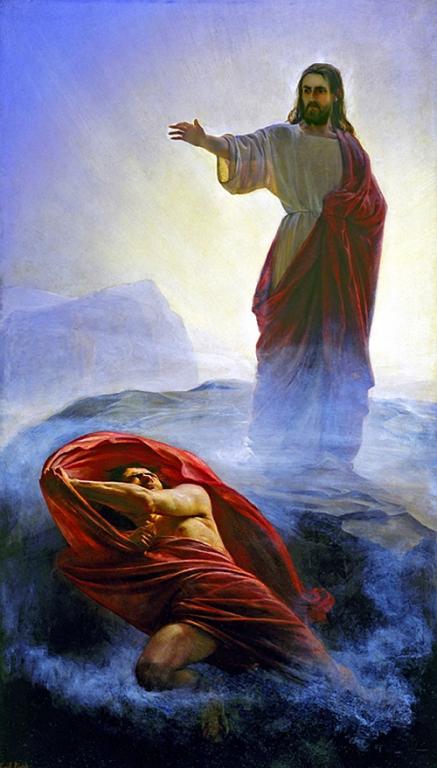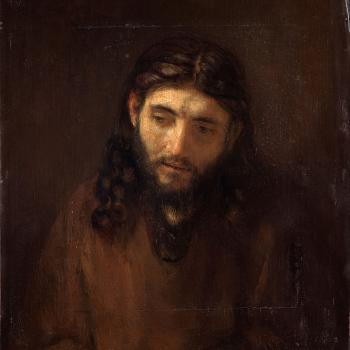
Matthew 4:1-7 (RSV) Then Jesus was led up by the Spirit into the wilderness to be tempted by the devil. [2] And he fasted forty days and forty nights, and afterward he was hungry. [3] And the tempter came and said to him, “If you are the Son of God, command these stones to become loaves of bread.” [4] But he answered, “It is written, `Man shall not live by bread alone, but by every word that proceeds from the mouth of God.’” [5] Then the devil took him to the holy city, and set him on the pinnacle of the temple, [6] and said to him, “If you are the Son of God, throw yourself down; for it is written, `He will give his angels charge of you,’ and `On their hands they will bear you up, lest you strike your foot against a stone.’” [7] Jesus said to him, “Again it is written, `You shall not tempt the Lord your God.’” (Cf. Lk 4:1-13)
In my own opinion, the passage has a double application: primarily to God the Father, but also to Jesus Himself. After all, 4:1 says He was “tempted by the devil” (cf. 4:3; Lk 4:2, 13). Matthew 4:7 is a citation of Deuteronomy 6:16. In the context of that passage, the Jews were tempting God to show them a miracle.
So what do we have here? The devil challenged (or tempted) Jesus to turn stones into bread (4:3), and referred to Him (cynically and mockingly, but with knowledge) as “the Son of God.”
We know from John 5:18 that in the Jewish mind, “son of God” was tantamount to being God (“This was why the Jews sought all the more to kill him, because he not only broke the sabbath but also called God his Father, making himself equal with God.”). The Jews even tried to stone Jesus in one instance because He called God His Father (Jn 10:30-36).
Satan knew Who Jesus was. James 2:19 states: “You believe that God is one; you do well. Even the demons believe — and shudder.” (cf. Mk 1:24; Lk 4:34).
The Church father Hilary of Poitiers wrote: “Thus beating down the efforts of the Devil, He professes Himself both God and Lord.” This was included in the Catena Aurea of St. Thomas Aquinas (a commentary on Matthew, that collected patristic commentary). I used this argument way back in 1981, as a budding Protestant apologist defending the divinity (or “deity”) of Christ.
I think it is a legitimate secondary application of the verse. Hilary thought so, too (and St. Thomas quoted him to that effect), and I suspect others could be found if we looked hard enough. Granted, I don’t think it’s one of the stronger arguments for the divinity of Jesus (of which there are literally hundreds), by a long shot, but it’s interesting, plausible, and possible, and it doesn’t appear that we can totally rule it out from what we have in the text, and cross-textual considerations.
***
Photo credit: Denying Satan, by Carl Bloch (1834-1890) [public domain / Wikimedia Commons]
***

















